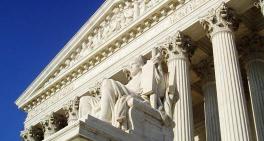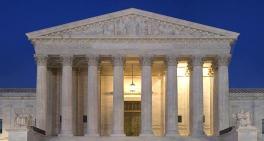Breyer, Gorsuch join to promote education about Constitution
United States Courts
Recently retired Supreme Court Justice Stephen Breyer has become the honorary co-chairman of a nonpartisan group devoted to education about the Constitution, joining Justice Neil Gorsuch at a time of intense political polarization and rising skepticism about the court’s independence.
The National Constitution Center in Philadelphia said Thursday that Breyer and Gorsuch, who has served since 2019, will be spokesmen for civics education and civility in politics.
The justices’ decision to work together “is especially meaningful in this polarized time,” Jeffrey Rosen, the center’s president and CEO, said.
The 84-year-old Breyer retired at the end of June after nearly 28 years as a justice. His seat was taken by Justice Ketanji Brown Jackson, the high court’s first Black woman.
Breyer has been a constant voice for seeing the court as something other than “politicians in robes” even as the court has issued a string of conservative-driven decisions topped by eliminating the constitutional right to abortion and overturning Roe v. Wade.
In recent months, the court with six Republican-appointed conservatives and three liberals appointed by Democrats also has expanded gun rights, weakened the separation of church and state and constrained the Biden administration’s efforts to combat climate change and the coronavirus pandemic.
Related listings
-
U.S. Courts of Appeals
United States Courts 07/30/2017There are 13 appellate courts that sit below the U.S. Supreme Court, and they are called the U.S. Courts of Appeals. The 94 federal judicial districts are organized into 12 regional circuits, each of which has a court of appeals. The appellate ...
-
U.S. Supreme Court
United States Courts 07/30/2017U.S. Supreme Court The Supreme Court is the final judge in all cases involving laws of Congress, and the highest law of all — the Constitution. The Supreme Court, however, is far from all-powerful. Its power is limited by the other two branches...
-
National Courts
United States Courts 06/30/2017Judicial Panel On Multidistrict Litigati - ECF U.S. Court Of Federal Claims - ECF U.S. Court Of International Trade - ECF

New Rochelle, New York Work Accidents Lawyers
It doesn’t matter what type of work you do or where you work, you can always be at risk of injuring yourself at your work no matter how safe you may think it is. Accidents in the workplace are often caused by unsafe work conditions arising from ignoring safety rules, overlooking maintenance or other negligence of those in management. Work accidents can cause serious injuries and sometimes permanent damage. Some extremely serious work injuries can permanently hinder a person’s ability to get around and continue their daily duties.
Factors that affect one’s quality of life like place of work, relationships with friends and family, social standing can all be taken away quickly by a work injury. Although, you may not be able to recover all of your losses, you may be entitled to compensation as a result of your work injury. In order to ensure that you and your loved ones receive the best outcome, make sure you have the help of an experienced New Rochelle, New York workplace injury lawyer you deserve. We can get you on your way to filing a claim against the responsible party. If you have been injured at your place of work it is important to know your options by seeking legal action. Kommer Bave & Ollman LLP offers a free case evaluation where we will answer any questions you may have and explain your legal options. Call us at 914-633-7400 or contact our firm to schedule a free consultation with an experienced attorney.




